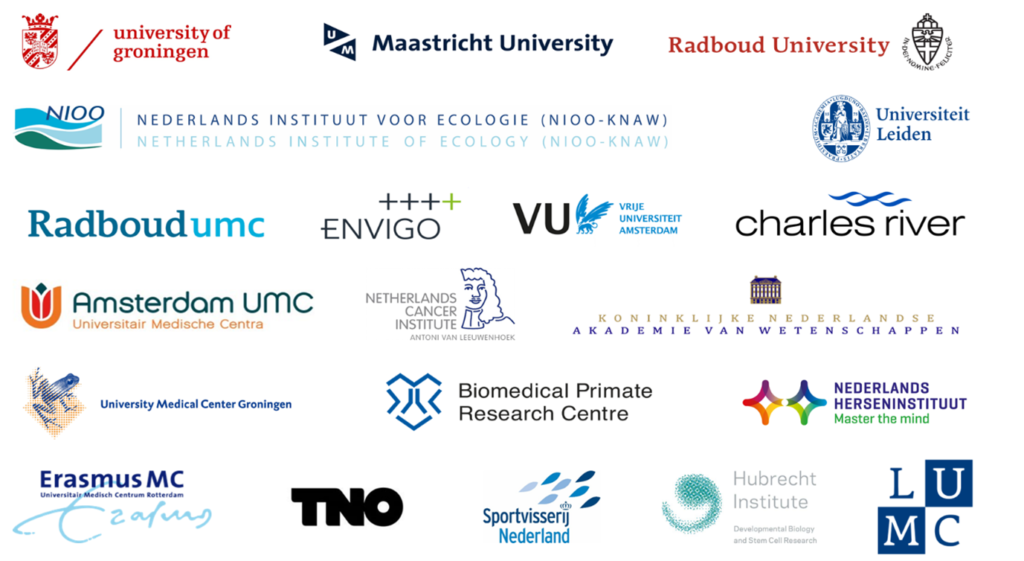A plea for acceleration of the current route to alternative testing, instead of a sudden ban
Last January, the European Commission (EC) has validated the petition “Save Cruelty Free Cosmetics – Commit to a Europe Without Animal Testing”. This initiative suggests, despite its title, a general ban on all animal research. We fully support the development of animal-free innovations, which is increasing every year in the Netherlands. However, we are deeply concerned that many people are not aware of the far-reaching consequences of a general ban on animal research.
Therefore, as signatories of the Dutch Transparency Agreement, we would like to raise awareness on the major consequences of an abrupt ban on all animals for research purposes and encourage politicians to have a balanced discussion based on facts and full information, in addition to the emotions that are inescapably involved in this discussion.
What would happen if there were an abrupt, general ban on animal research?
- Scientific research would collapse, and biomedical progress would stop; the complete and functional body of an organism is complex, with behavioural expressions, interacting organs and migrating cells. Although many animal-free methods are being developed, none of them fully capture this complexity. New insights in fundamental processes and mechanisms of action as well as the development of novel therapeutics, vaccines and diagnostic tools will come to a halt. In addition, the progress of animal-free innovations would stall, since many of these innovations are dependent on knowledge derived from animal research. To deprive Europe of life sciences and biomedicine research will greatly frustrate the European research agenda setting, innovation and addressing major challenges of these times.
- Patients, human and animal, would rely on innovation from outside the EU; medication, vaccines and medical implants will keep being developed, partially relying on animal research carried out outside the EU. How do we deal with this? Do we keep producing and importing those drugs or do we completely ban them? A full ban would mean that patients, both human and animal, will not have access to medication that saves and/or improves their lives.
- Research for animal welfare, food safety, biodiversity and the environment will stall; the Netherlands and the EU have high ambitions when it comes to animal welfare, food safety, biodiversity and the environment. Research on these topics rely heavily on studies with animals. No animal-free alternatives can be developed for studying wild animal populations’ behaviour, health, and impact.
Taken all together, abruptly banning animal research will have a huge negative impact on health, a sustainable future and the research agenda in Europe.
As science progresses new approaches will continue to become available. These will replace laboratory animals as already embedded in Directive 2010/63/EU. Far-reaching changes to current regulations wouldn’t be helpful in our joint journey towards less animal research. It will rather be harmful. What we would rather see is accelerated investment in collaboration between science, industry, politicians and legislators to achieve faster development and approval processes for alternative research.
As signatories to the Transparency Agreement on Animal Research in the Netherlands we are convinced we must be as open as possible about animal research. Only an open debate based on accurate and up-to-date information can make up someone’s mind on this complex matter, both individually and collectively.

This statement is also supported by:
- Utrecht University
- University Medical Center Utrecht